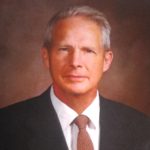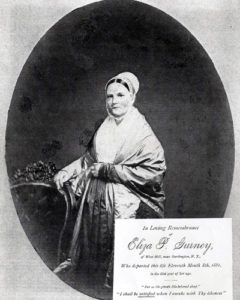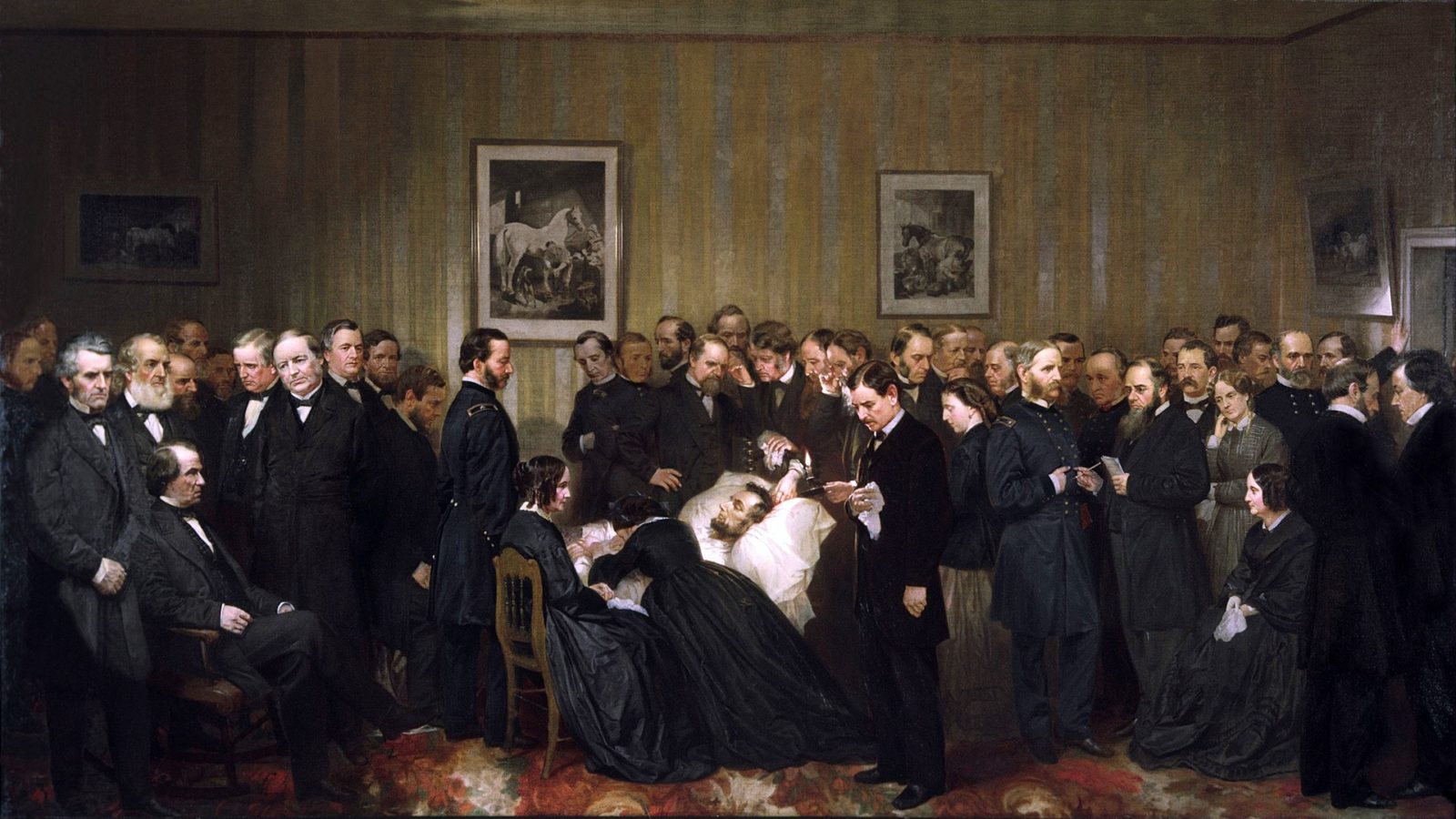Abraham Lincoln found amazing grace from local Quakers in the midst of Civil War.
My final visit with lawyer Sam Snipes was last September, shortly before he saddled up on one of his horses to mark his 99th birthday. This was a few months before his passing in January at the Snipes Family Farm in Falls where he lived all his life. The Quaker luminary loaned me autobiographical books about his life and the Society of Friends in the Philadelphia region. Flipping through, I made reference to a particularly interesting vignette about Abraham Lincoln. Sam gave me a whimsical smile and then in a near whisper at his dining room table patiently recounted the story.

Sam in his 91st year led an effort to place a memorial to Eliza Gurney at her 65-acre West Hill Farm in Burlington, N.J. As the head of a Quaker delegation from the region, she met with Abraham Lincoln at the White House to give him spiritual comfort, moving him to tears when the outcome of the Civil War was much in doubt.
Eliza was the widow of Joseph John Gurney of Burlington Friends Meeting. Both were renowned Quaker ministers in both America and Europe. Unfortunately, he died after being thrown from a horse in 1847, leaving her to carry on. In mid-October of 1862, Eliza traveled to Washington with a passivist Quaker delegation of James Carey, Hanna Mott and John Whitall. A few weeks earlier, Lincoln had issued a preliminary Emancipation Proclamation declaring an end to slavery in rebellious Southern states. The Friends had long sheltered fugitive slaves in safe houses in Philadelphia, Bucks, Montgomery and Burlington counties and led the successful effort to ban slavery in Pennsylvania 80 years before the Civil War.

Lincoln wasn’t a particularly religious man though he often quoted the Bible. He grew up a Baptist but as a young man expressed religious skepticism. He didn’t openly embrace any religion through life. During the war, he remarked Quakers “have had, are having, a very great trial. On principle, and faith, opposed to both war and oppression, they can only practically oppose oppression by war.”
After a two-day wait, Eliza and the others entered the White House where Lincoln greeted them on Oct. 16, 1862, a Sabbath. John Whitall recalled the moment:
“The deep solemnity, the almost awful silence reigning within that room formed a striking contrast to the fearful scene of strife and carnage that was enacted, almost within sight, just on the other bank of the Potomac. And then to see the tears run down the cheeks of our honored President as Eliza Gurney solemnly addressed him.”
In her prayer for Lincoln, Eliza noted “the remaining difficulties of thy wilderness journey” in a war taking grievous casualties and looking doubtful. Southern Confederate forces had defeated Union armies in Virginia, West Virginia and Maryland and threatened Washington. “In common with thousands and tens of thousands on both sides of the Atlantic,” Gurney went on, “my heart has rejoiced in the noble effort which our honored President has made . . . to loose the bands of wickedness, to undo the heavy burdens, to let the oppressed go free; and I assuredly believe that for this magnanimous deed the children yet unborn will rise up and call him blessed in the name of the Lord. But trials and persecutions are the lot of all who endeavor to maintain a just weight and a just balance, and who desire to be found walking in the path of uprightness.”
Later that day, the president wrote a letter to Guerny expressing his gratitude, adding, “We are indeed going through a great trial – a fiery trial. . . . If after endeavoring to do my best in the light which He affords me, I find my efforts fail, I must believe that for some purpose unknown to me, He wills it otherwise.”
The following August of 1863, Lincoln again reached out to Gerney. The Battle of Gettysburg the previous month marked a turning point in the war and Lincoln was preparing to go to Gettysburg to make a short speech. On Aug. 18, Eliza replied from West Hill. “Many times, since I was privileged to have an interview with thee, nearly a year ago, my mind turned towards thee with feelings of sincere and Christian interest, . . . I feel inclined to give the assurance of my continued hearty sympathy in all thy heavy burdens and responsibilities and to express not only my own earnest prayer, but I believe the prayers of many thousands whose heart thou hast gladdened by thy praise worthy and successful effort ‘to burst the bands of wickedness, and let the oppressed go free’ that the Almighty may strengthen thee to accomplish all the blessed purposes.”
Lincoln tucked the letter into his breast pocket and carried it with him every day through the conclusion the war two years later. It was still there when he was assassinated having won the war to free the slaves.
Sources include the personal records of Samuel Snipes and archival information at West Hill,1114 Oxmead Road, Burlington, N.J. The farm is open to public tours by appointment only; call 856-768-0312 or email at [email protected] . More information on the Web at www.westhillnj.org.

